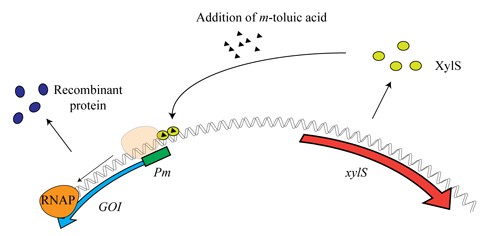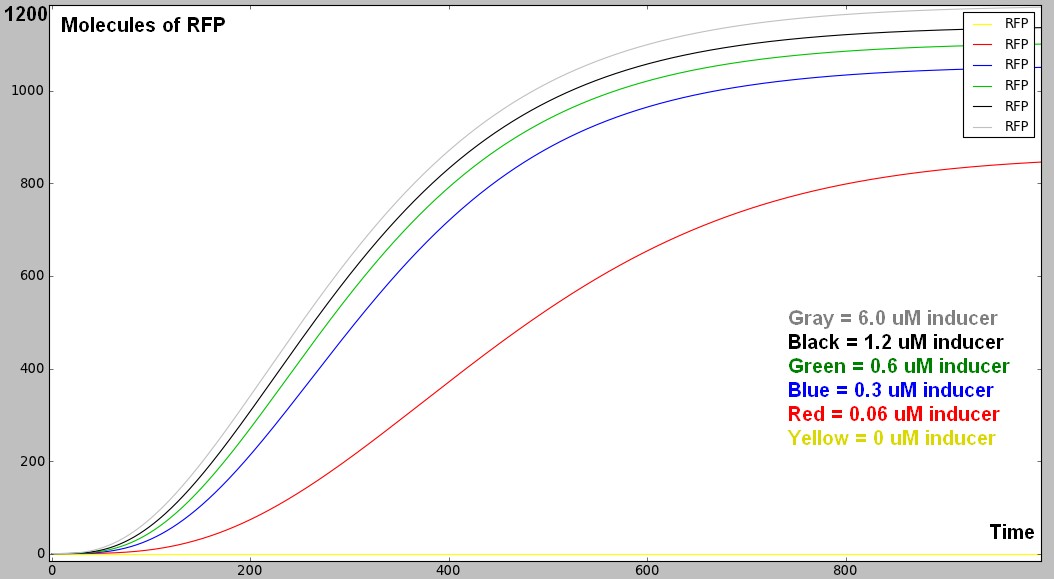</div>
The Pm/Xyls promotor system is a positive regulator system where the regulator molcule, Xyls, is constitutivly produced. When Xyls binds to the inducer m-toluic acid this complex binds to the Pm promotor(see figure 1). Binding to the promotor facilitates binding of RNA polymerase (RNAp) making it active (RNApA) and production of mRNA in an elongation step. The mRNA will be translated into the recombinant protein, or in our case, RFP. Over time mRNA and RFP will be degraded to som extent.

The reaction equations in the Pm/Xyls promotor system are listed below

A deterministic simulation of the system was run on [http://cain.sourceforge.net/ Cain software] with the parameters as viewed in figure 2. Only the number/consentration of the inducer was varieted.

Varies starter consentration, 0, 0.06, 0.3, 0.6, 1.2 and 6 µM of the inducer gave the result as indicated in figure 3 below.

| Start consentration (µM) of inducer | Molecules of inducer | Consentration (µM) of RFP (steady state) | Molcules of RFP (steady state) |
|---|---|---|---|
| 0 | 0 | ||
| 0.06 | 100 | ||
| 500 | 0.3 | ||
| 1000 | 0.6 | ||
| 2000 | 1.2 | ||
| 10 000 | 6.0 |